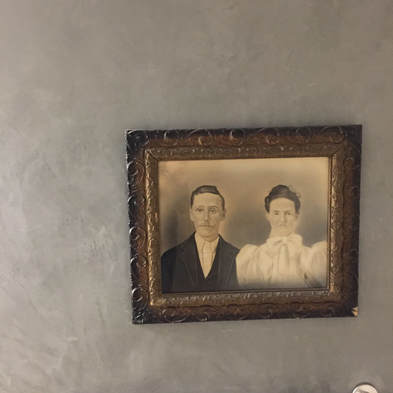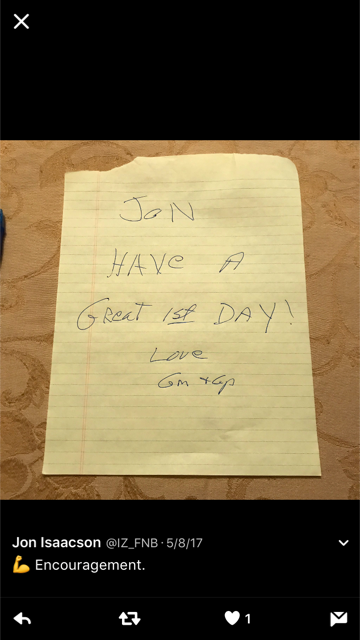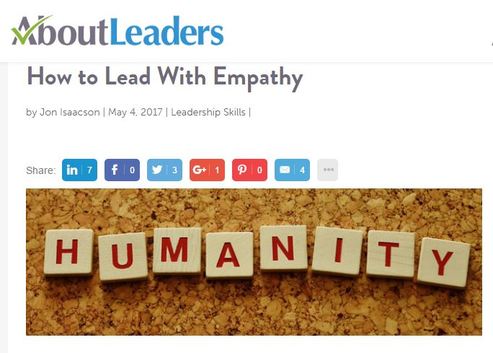 No one has fun playing the blame game No one has fun playing the blame game Conflict is helpful as it causes the truth of a culture to rise to the surface for an organization. When there is conflict we learn as a team whether we are still knee deep in the status quo practices that hinder teams such as playing the blame game or if our team will stay the course of progress and work together to resolve the issue(s). In an article titled Fear and Loathing in Non-Profit, Sarai Johnson makes the point about the standard operating procedures (SOP) for unhealthy teams, “When something goes wrong, a witch hunt is launched to find a scapegoat – blame is more important than accountability.” Sarai leads an organization called Lean Non Profit which obviously is working within that particular framework, but these destructive habits apply to teams of all economic structures. In any combined effort the same challenges exist for creating a healthy culture which often include clarity, consistency and accountability. That tendency to engage in the search for a scapegoat (or playing the blame game) is the default modus operandi for unhealthy teams when dealing with conflict. When the vision is not clear, the disciplines are not consistent and the culture has not been crafted to establish internal accountability characteristics such as self-promotion, finger pointing and overall negativity will be inhibit team development. Self-promotion is natural, as all individuals want to feel a sense of pride in what they are doing and to be recognized for it, this of itself is not a negative thing but has to be managed. If team members are consistently self adulating, this habit should serve as an indicator to those in leadership that efforts need to be made to more consistently recognize team members and develop a culture where individuals are encouraging each other. When a leader makes it a habit to praise culture enhancing practices that have been observed from individuals throughout the week, both in private as well as in public settings, the example is set for others to follow. Simple things such as starting a meeting off with sincere compliments and opening the floor for team members to brag on each other can create momentum for the culture shift. Blame is the the dark side of self promotion. It is one thing to desire recognition, it is a more dangerous thing to achieve such by putting others down. The blame game is what happens when self-promotion and/or criticism among team members is not managed. If there is a void of recognition for employees, or there is an imbalance that is not merit related (i.e. there are favorites) or the culture is spiteful, these character viruses will thrive. In every instance where I have joined or taken the reigns of a new team I have experienced levels of self-adulation and blame, in many ways individuals have not been trained to work as a team so when a structure (healthy or not) is removed they will test the boundaries of the new system. With regards to a culture of negativity, I can recall a company I worked for that had a “naughty board” where employees were written up publicly for mistakes they had made. I believe the concept was that this activity would deter employees from doing these things in the future, which is an short sighted view of discipline, motivation and employee development. This type of public humiliation is not effective for any generation and does not assist people to grasp the vision or embrace their role in the development of the team. A gold star board is similarly ineffective as it is trite, but there is value in positively promoting clear values and publicly recognizing those who are moving the vision forward. Building a culture that is clear, consistent and accountable does not mean that there is no conflict or that discipline is ignored, it just means that these situations and practices are guided by the vision of the organization. Going back to where we started, author, speaker and host of the No Nonsense Nonprofit Podcast, Sarai Johnson notes, “Without intentional and purposeful work, culture becomes whatever it will be – for better or worse – and it is dependent on the personalities at hand when it starts.” From Sarai’s experience with nonprofits she sees that these organizations, “Don’t typically see it fit to invest in cultures.” Yet this isn’t exclusive to nonprofits as many for-profit organizations are equally lethargic in their approach to this aspect of development. The blame game is one that is often started from the top down and for an organization to be accountable the values have to be practiced by all. Regardless of your position within the organization you can effect positive change by setting an example of taking ownership for mistakes and working to collaborate with the team to resolve issues rather than join the witch hunt. Culture is not a unicorn, it is the result of intentional efforts.
0 Comments
 Isn't encouragement a beautiful thing? If a kind word or a sincere compliment give you a boost that motivates you to keep doing good things than pass that positive energy forward and give someone something powerful today, encourage them. We recently ventured out from what we knew, what was working and what was comfortable to try our hands at a new challenge. In the transition we are staying with family which has created opportunities to connect with people we haven't spent significant time with in a while. On my first day of the new professional challenge my grandparents left this nice little note for me. It made me smile and signifies the greater truth that there are people rooting for you because they love and like you. Kind words can give you a boost to knock through the obstacles that stand between you and accomplishing your goals. Connect, collaborate and conquer is the recipe for success in personal as well as professional pursuits. As discussed in a prior article, "There are few things in life that cost you very little and yet can have significant positive collateral impact in the life of another human. Paying someone a compliment will only cost you a few seconds of air and yet it has the potential to be a seed or a watering that flourishes in the life of a fellow human. We are well aware that words have the power to bring us to our knees, but words from the same stink filled sources also have the power also to lift spirits, raise confidence and inspire momentum." You can read more on the power and return on investment (ROI) of a compliment HERE. You can also read and view a funny video that demonstrates how people feel when they receive No Compliments. Do you have a fun story to share from when you received a positive boost?  Article on leadership published with About Leaders Article on leadership published with About Leaders As a society, we talk a lot about leadership. This concept has become it's own industry with books, lectures, podcasts, seminars and trinkets. Yet, in all of the various words expended on business, entrepreneurship, and leadership, there are few that discuss the role of empathy as a key to the development of emotional intelligence. If you are in a position of leadership and have a desire to improve your employee engagement as well as team development, there is great value in continuing to grow your own emotional intelligence as you deal with people from various backgrounds. To be a leader in developing others you must start by leading yourself to set an example for how growth is a both a priority as well as an ever evolving process for individuals and their teams. Read more in our article published in About Leader titled How to Lead With Empathy and give us your feedback on how you are developing yourself and your teams. Step out of your comfort zone, make some smart mistakes, build a thriving team and be the leader that your team deserves. If you are resistant to change as well as growing as a leader, you will continue to attract and manage the team that you deserve.  If you've been #blessed by good leaders, you have a responsibility to be a good leader If you've been #blessed by good leaders, you have a responsibility to be a good leader I didn’t start making any real money until I got into remediation work, does that mean that my wife is a mold digger? Would anyone other than a property restoration professional think this was funny? How did you get into water damage mitigation and microbial growth (the four letter word – mold) remediation or bio hazard (crime scene) clean up? I answered job posting in the local newspaper, when that was still a thing, for carpet cleaning at a time when the job market was thin and I wanted any job that would 1) get me away from my current employment and 2) allow me some flexibility to go to night school. In my initial interview I expressed that I was studying for a degree in criminal justice and the owner of the local franchise restoration company told me, “You would be great for our mold division.” Not having any idea what that was, I replied, “Why yes. Yes I would.” I have had many people over the years ask, what is a mold remediation division? It may be difficult for many to imagine but there was a time when insurance companies were paying on mold claims and there was plenty of work. Our organization had a good section of the local market, something that many franchises are no longer allowed to do, and our team was knocking out projects. In my professional pursuits doors were not opening in the path that I anticipated heading down while doors were opening in this new profession that only months before I did not know even existed. Sometimes we can be slow to recognize the clear turns that our journey is taking, but thankfully I was able to see a real opportunity to grow thanks to good leadership and support from my family. I always tell new recruits – if you are honest, hard working and willing to learn, we can teach you to be productive in our industry (see article Hiring, 3 Character Keys). How do I know this? Because this is exactly what I brought to the table and was fortunate enough to have good leaders who were willing to teach me the skills necessary to succeed as well as provide opportunities for me to grow in the property restoration profession. Good leaders are a blessing to their organizations and their employees, if you are in leadership you have the privilege and the responsibility to keep those torches burning – whether you were provided with good examples by good leaders or if you had to carve your own path. |
AuthorThoughts on personal and professional development. Jon Isaacson, The Intentional Restorer, is a contractor, author, and host of The DYOJO Podcast. The goal of The DYOJO is to help growth-minded restoration professionals shorten their DANG learning curve for personal and professional development. You can watch The DYOJO Podcast on YouTube on Thursdays or listen on your favorite podcast platform.
Archives
March 2023
Categories
All
<script type="text/javascript" src="//downloads.mailchimp.com/js/signup-forms/popup/unique-methods/embed.js" data-dojo-config="usePlainJson: true, isDebug: false"></script><script type="text/javascript">window.dojoRequire(["mojo/signup-forms/Loader"], function(L) { L.start({"baseUrl":"mc.us5.list-manage.com","uuid":"b9016446bd3c6a9f0bd835d4e","lid":"83282ffb9e","uniqueMethods":true}) })</script>
|
Jon Isaacson |
Connect. Collaborate. Conquer.
© COPYRIGHT 2015. ALL RIGHTS RESERVED.
|



 RSS Feed
RSS Feed